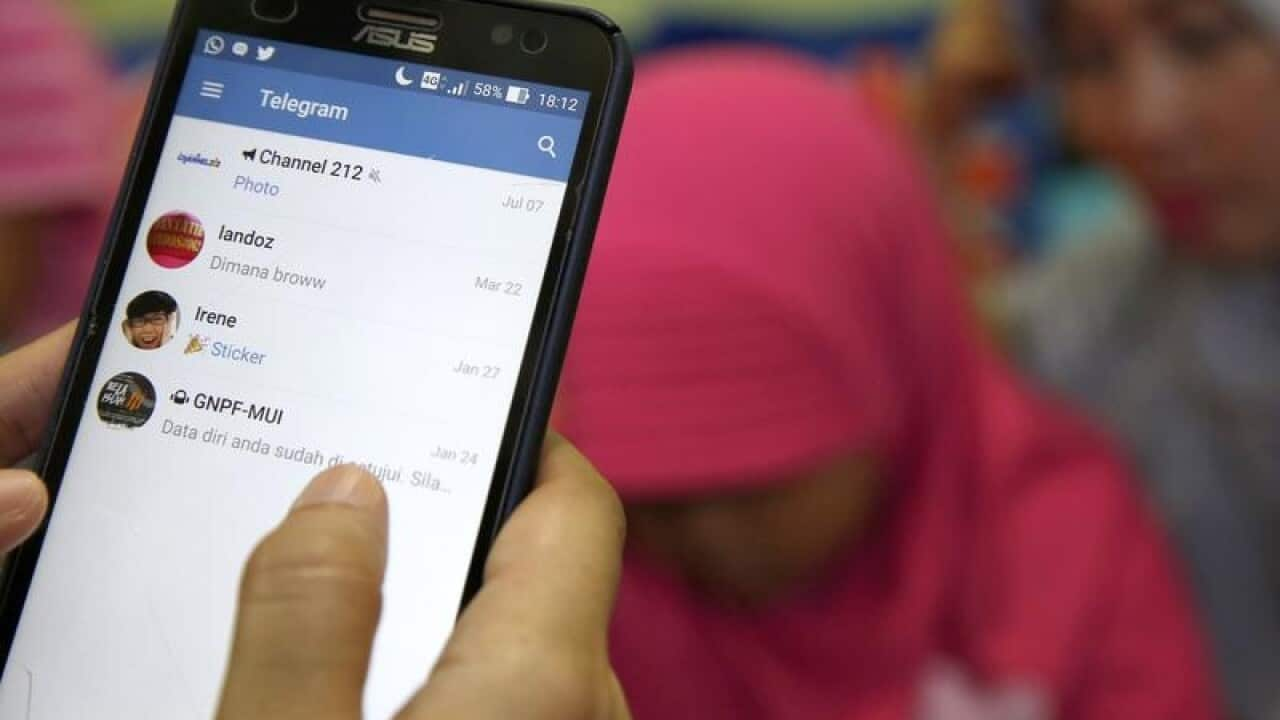Indonesia's move to block access to popular messaging service Telegram will do little to curb extremist activity, with hardliners already announcing it has encouraged them to 'hold a dagger instead of a cellphone', experts say.
Telegram had too much content promoting radicalism, extremism and "hatred belief" and needed to be blocked to safeguard the "integrity" of the republic, Indonesia's communication ministry announced on Friday.
The web version of the messaging service can no longer be accessed in the archipelago, with preparations to also shut down the application if the company does not prepare standard operating procedures, the government said.
But analyst with the Institute for Policy Analysis of Conflict (IPAC) Nava Nuraniyah said it will create more challenges.
"If anything it makes the extremists much more creative than before, they keep finding new platforms (to use)," she told a panel discussion at the Jakarta Foreign Correspondents Club on Monday.
Infiltration, she said, was more "realistic and urgent" and the government should aim to identify and map out ISIS networks on Telegram.
One Telegram group, going by the name of PT Unikiller with the tagline 'Killing the future', stated the ban was a "warning/whip" for them.
"So that we start to hold a dagger, bayonet, sword and revolver ... instead of holding a cellphone," it noted.
While Indonesian IS militant Bahrun Naim, has been known to use Telegram to contact Indonesians from Syria, Ms Nuraniyah said the majority of people linked to extremist groups used the application for gossip rather than terrorist plots.
"It becomes like a support group. In some cases it replaces one's own family, especially in the instance where one's family is against their decision to join radical groups."
They talk about "hot jihadis", share recipes and buy clothes and lingerie, she added.
Telegram's CEO Pavel Durov said on Sunday the ministry had contacted them with a list of public channels with terrorism related content but his team was "unable to quickly process" them.
Those channels are now blocked and it is forming "a dedicated team of moderators with knowledge of the Indonesian language and culture to be able to process reports of terrorist related content more quickly and accurately."
Telegram, he added, had "several million" users in Indonesia.

